TABLE OF CONTENTS
There are many laptop brands and manufacturers out there and, on the surface, they all seem equally dependable.
In actuality, however, that couldn’t be further from the truth. No two brands are the same, and that is most often reflected in how they handle warranties, their customer support, and, unfortunately, the areas in which they skimp out and cut corners.
And yet they all employ the same marketing ploys and methods of luring in potential buyers.
They’re companies and conglomerates with a singular goal: to thrive in any economy and generate as much profit as possible. Some are better at this than others, but they try all the same.
For this piece, specifically, we will focus on Dell and HP, two companies that have stood the test of time and are currently held in high regard.
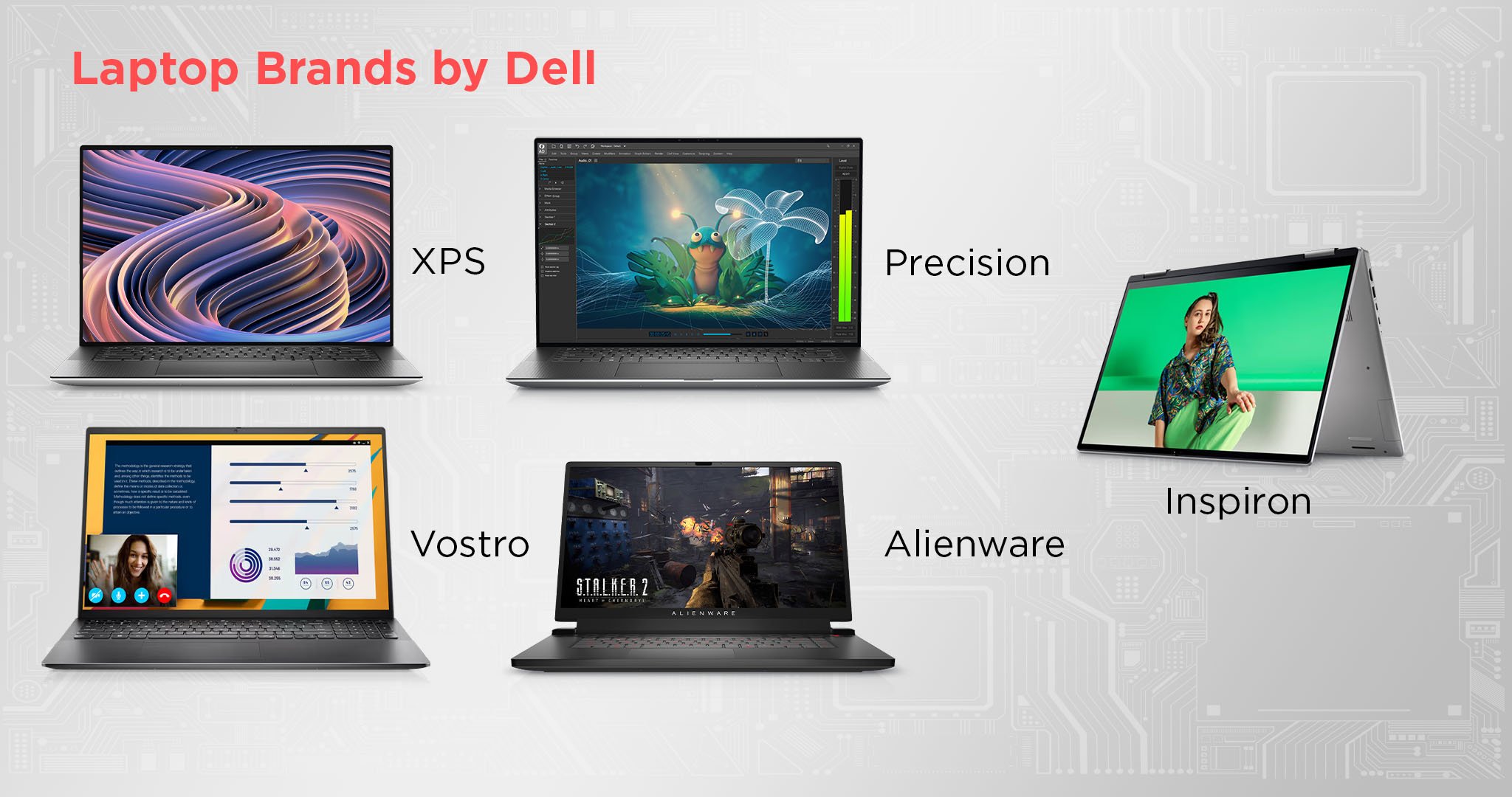
Source: Dell
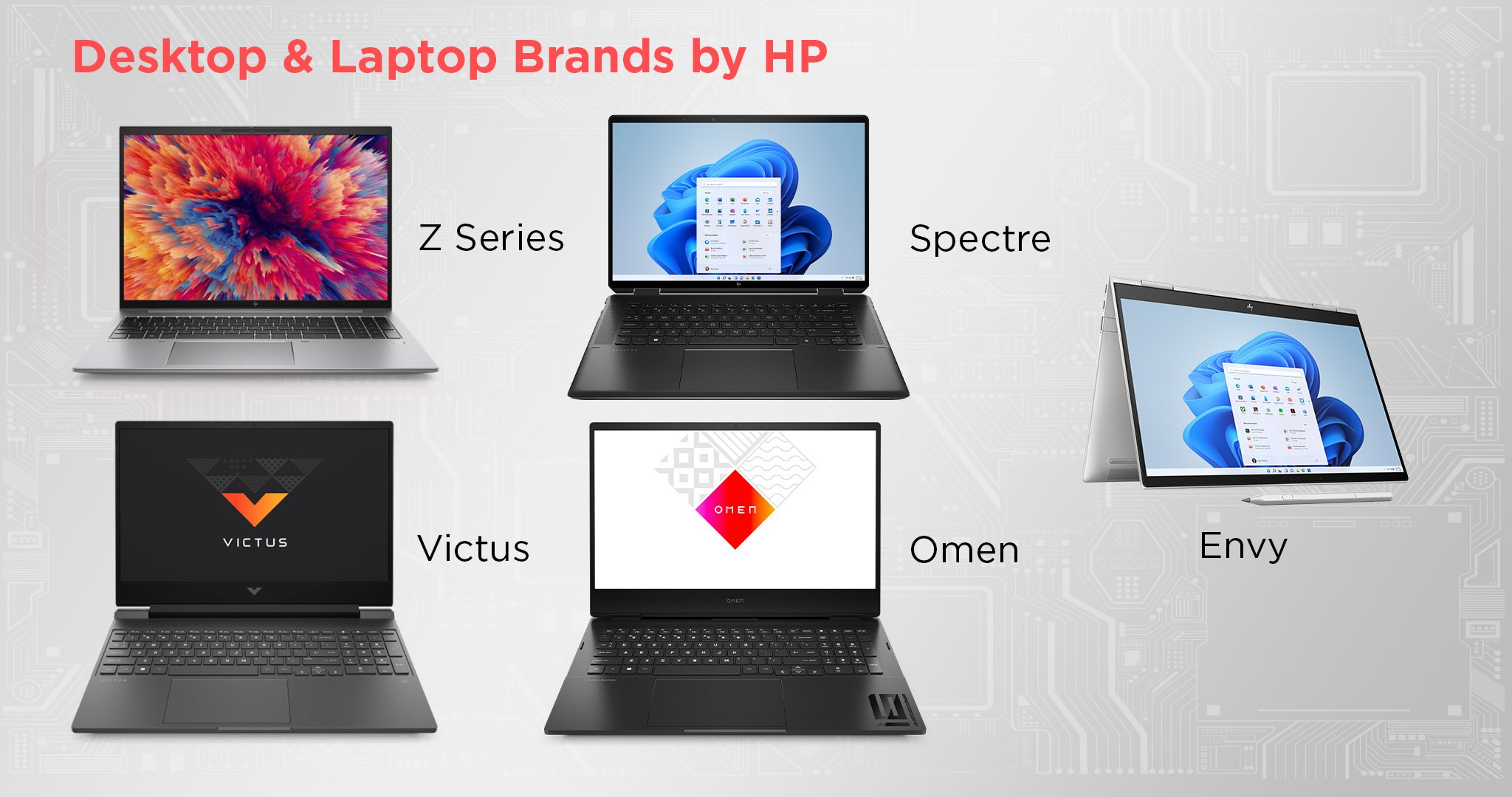
Source: HP
Their product stacks are pretty similar (and wholly focused on business users) but they do have a few lines of consumer-oriented, high-end laptops for creative professionals, gamers, and everyone in between.
These are, naturally, what most folks gravitate towards and, credit where credit is due, both Dell and HP have solidified their spots in the IT pantheon through stellar design, top-notch craftsmanship, and attention to detail that can only be described as “best in class.”
They’re not without fault, mind you, but their varied offerings have nonetheless been grabbing our attention for many a year now; ENVY, Spectre, XPS, Precision, OMEN, and Alienware are all “sub-brands” that have stood the test of time.
And the tremendousness of such an achievement cannot be overstated: to thrive amidst such a challenging market requires an incredible amount of forethought and deftness.
So which route should you take — Dell or HP? Let’s take a closer look at what sets them apart.
Dell vs. HP — What’s the Better Option for Gaming?
That would, without a doubt, be HP. This company has some of the very best and most impressive gaming laptops on the market.
They’re not perfect by any stretch of the imagination but are nonetheless incredible options that offer a phenomenal blend of power, aesthetics, and — perhaps most importantly — value.
HP’s OMEN series is always a stellar option for those looking to “get their game on.” They might not be as precisely machined as, say, Razer Blades (or as versatile as some laptops from ASUS), but are still phenomenal in every sense of the word.
For the budget-minded, there’s also Victus — a more affordable but still sleek and powerful line of laptops that can, in most scenarios, keep up with their more stylish OMEN brethren.
HP doesn’t make the best gaming laptops, but its offerings are still a fair bit more varied and, more often than not, affordable compared to those from Dell. They’re also a bit more visually appealing, although that can, at times, be quite subjective.
Dell, on the other hand, has two distinct lines of gaming-oriented laptops: G-series and Alienware.
The former is geared more towards gamers on a budget, towards those users who don’t need the latest and greatest hardware or the most jaw-dropping features and nifty bells and whistles.
They’re mostly made of plastic, are, at times, rough around the edges (figuratively speaking), and don’t have the best or brightest displays, but still offer everything a gamer needs: powerful internals and respectable I/O.
They’re not bad by any means but they do pale compared to most other gaming laptops on the market. Still, for up to a thousand dollars/euros they’re quite impressive; laptops that would no doubt serve you well for the years to come.
Alienware, on the other hand, needs no introduction. Alienware offers premium laptops, impeccably designed and powerful beyond measure. They’re mighty expensive as well — often too expensive.
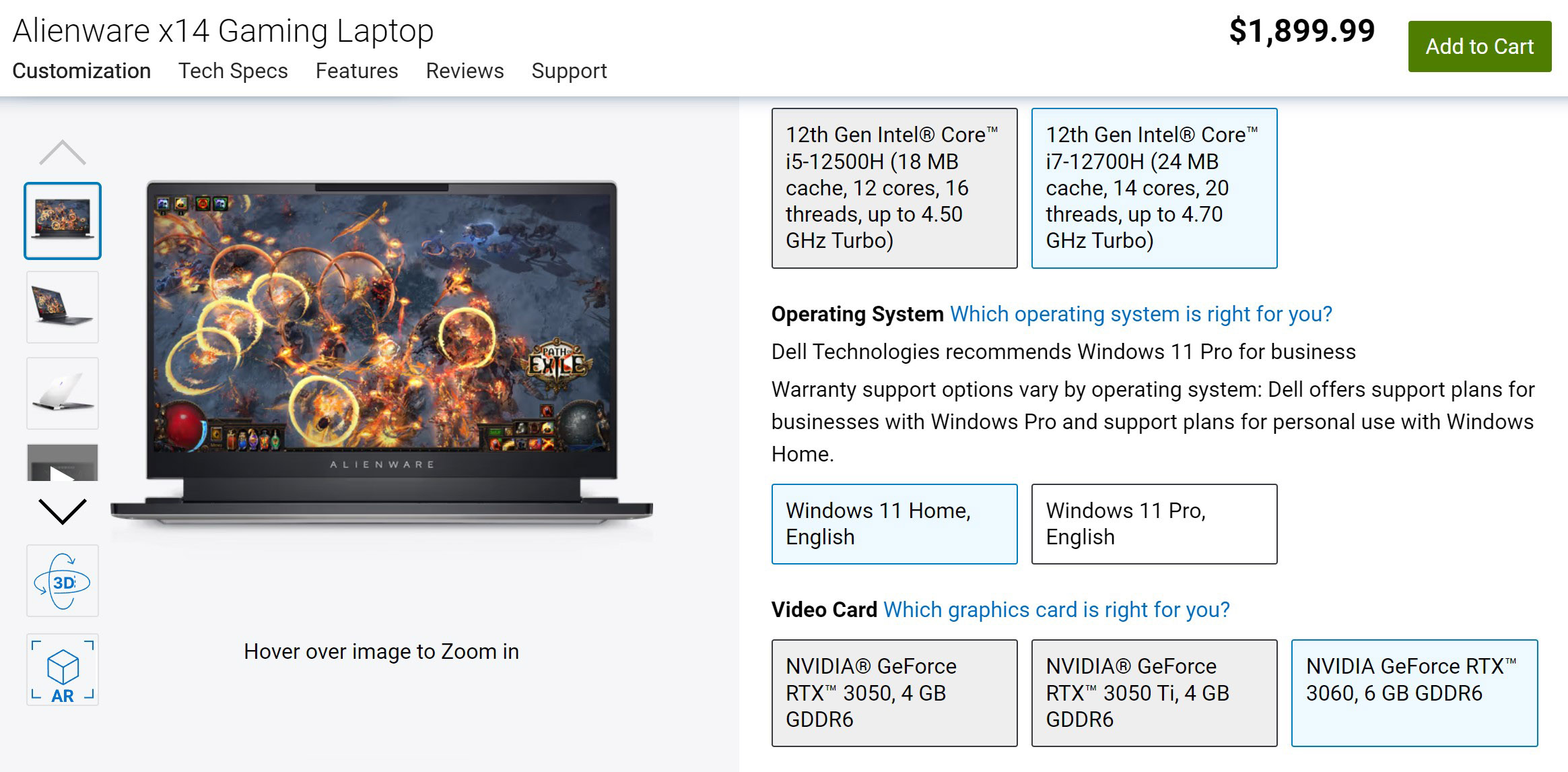
Source: Dell
They are also sometimes weirdly spec’d out. Take the Alienware x14 for instance. For $1900 you’re only getting a 12th Gen Intel Core i7-12700H and an NVIDIA RTX 3060.
Those are great specs, no doubt about it, but you could also get the exact same internals for much less. There’s definitely an “Alienware tax” involved and that may or may not be a dealbreaker, depending on your personal preference and overall budget.
Then again, much of the same can be said for Razer as well, and Dell still offers better support, and longer warranties and its laptops are, in most cases, easier to repair. These are no small benefits.
Moreover, Alienware laptops aren’t geared towards those who want the most value — they’re showpieces, incredibly beautiful and often bafflingly thin gaming laptops that still offer incredible gaming performance. Some models do this better than others, of course, but the point stands nonetheless.
So if your budget can cover it, Alienware laptops are definitely worth checking out.
Keep In Mind: Both HP and Dell have the tendency to equip their gaming laptops with horrendous, subpar screens — displays that are far too dim (less than 300 nits) and not at all color accurate.
So just keep that in mind as there are (almost) always multiple SKUs with entirely different panels. And, well, the difference is quite tremendous.
Dell vs. HP — What’s the Better Option for Creative Work?
This is a tricky question to answer. Perhaps the most direct and honest response would be: it depends.
If you’re, say, a video editor or someone who needs a lot of horsepower for their creative endeavors, then you’re more tied to the internals themselves rather than the brand/manufacturer.
In that case, you can just go with whichever option your wallet fancies most.
If you need a good display, though — and, odds are, you really do — then Dell’s laptops stand out almost immediately. Their panels are some of the brightest, and most color accurate on the market.
They’re a wholly spectacular canvas for your work, one that would surely serve as a tremendous boon to your creative process.
These displays are most often found on XPS laptops. They also have some very respectable internals, too: mighty processors and graphics cards that are powerful enough not to be a bottleneck.
They’re not the most potent laptops on the market and their fan curves are more conservatively tuned, but that does result in an incredibly pleasant user experience.
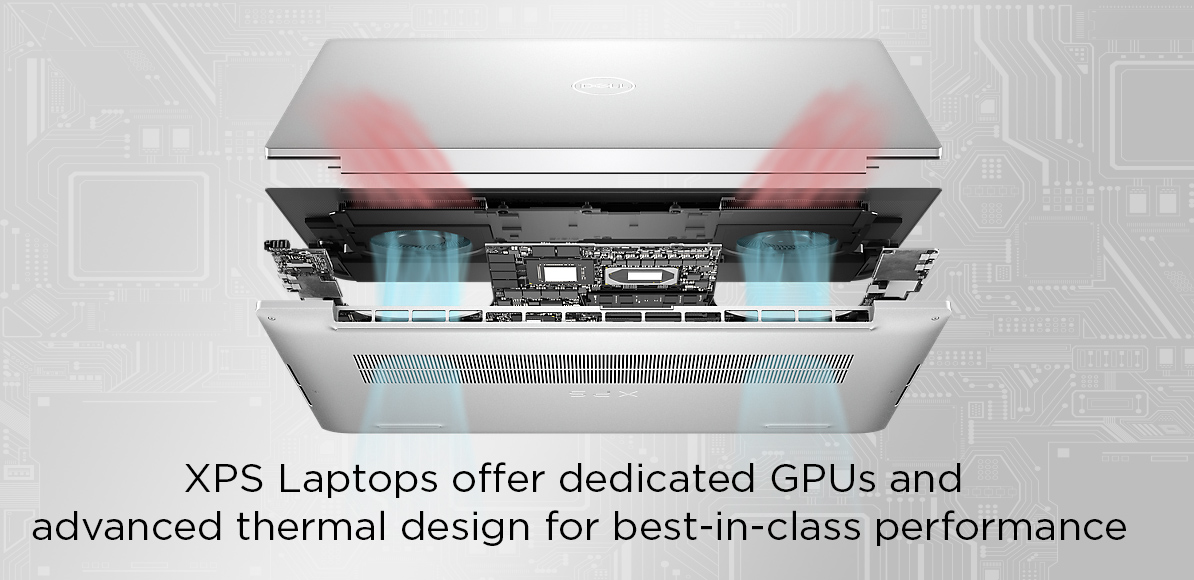
Source: Dell
Certain ENVY and Spectre models also have high-end screens that are bright and color accurate, but the general consensus is that they’re not as good as those from Dell. HP’s ENVY 16 is undoubtedly a direct “answer” to the XPS 15 — and it’s a pretty darn good one, too.
So, before whipping out your wallet, do make sure to read the fine print.
Check the specifications and the color accuracy of the particular model you’re interested in, regardless if it’s from Dell or HP.
Just because it looks nice doesn’t mean it’ll perform particularly well and offer the kind of experience you’re after.
Dell vs. HP — What’s the Better Option for Business Users?
This one’s a tie. Both companies offer incredible business laptops.
Silent, sleek, impeccably designed with beautiful displays, great keyboards, and respectable battery life (this one varies wildly depending on the model and its spec sheet).
Both manufacturers have business-oriented laptops that are varied enough in design and price so you’re bound to find something that’ll suit your needs and use case.
Dell does mostly focus on clamshell designs, whereas HP has a more diverse portfolio — 2-in-1s, hybrids, convertibles, and everything in between.
So, if you’re looking for something a bit more versatile, HP might be the way to go.
Moreover, HP laptops often have a better selection of ports: USB-A, HDMI, and, in some cases, a MicroSD slot. These things might not be all that valuable if you’re already used to the “dongle life” but they’re definitely an invaluable “asset” for those who are constantly on the go.
No Company Is Perfect
Dell and HP, while certainly revered and respected, are not without fault. Their products, too, have issues with quality control.
Some of them aren’t tuned all that well. Others might not perform as well as you’d expect. Laptops are made “by the dozen” and these things, unfortunately, happen all the time.
No manufacturer is impervious to such fumbles and snafus, so make sure to get yourself a laptop that has a long enough warranty; also, if possible, buy it from a place that accepts immediate returns.
This could seriously come in clutch should you notice any weird behavior or QC issue with, say, the screen or the trackpad.
Hunt For a Good Deal
Last but certainly not least, Dell and HP laptops tend to go on sale all the time (maybe more so with Dell but the point still stands).
Wait for a good deal, keep your ears close to the ground, observe the trends, and then, once it’s time, pull the proverbial trigger.
You could easily save hundreds of dollars by just waiting a few weeks/months which, frankly, is nothing to scoff at.
Moreover, older laptops are getting discounted all the time and yet they’re still more than powerful enough for any kind of user.
Ryzen 5000 series CPUs are still incredible, for instance. They’re not as efficient as the ones that came out at the beginning of 2022 but they’re still efficient enough.
Check benchmarks, watch reviews, read the spec sheet, and then, if the laptop can deliver the kind of experience you’re after, do make the investment — even if the internals aren’t as shiny and alluring. Your wallet will thank you.
FAQ
Let’s go over a few potential questions you might have regarding this particular topic:
Which Company Has the Best Laptops: Dell or HP?
There’s no “one-size-fits-all” kind of answer. Both companies have amazing products and extremely diverse portfolios that cater to all kinds of users.
HP has the edge when it comes to gaming, whereas Dell has the better, more popular offerings for creatives. Still, it’s extremely close.
HP’s laptops are more competitively priced and they’re also a fair bit more versatile when it comes to form factor and I/O.
Are Dell Laptops Good for Creative Work?
They absolutely are!
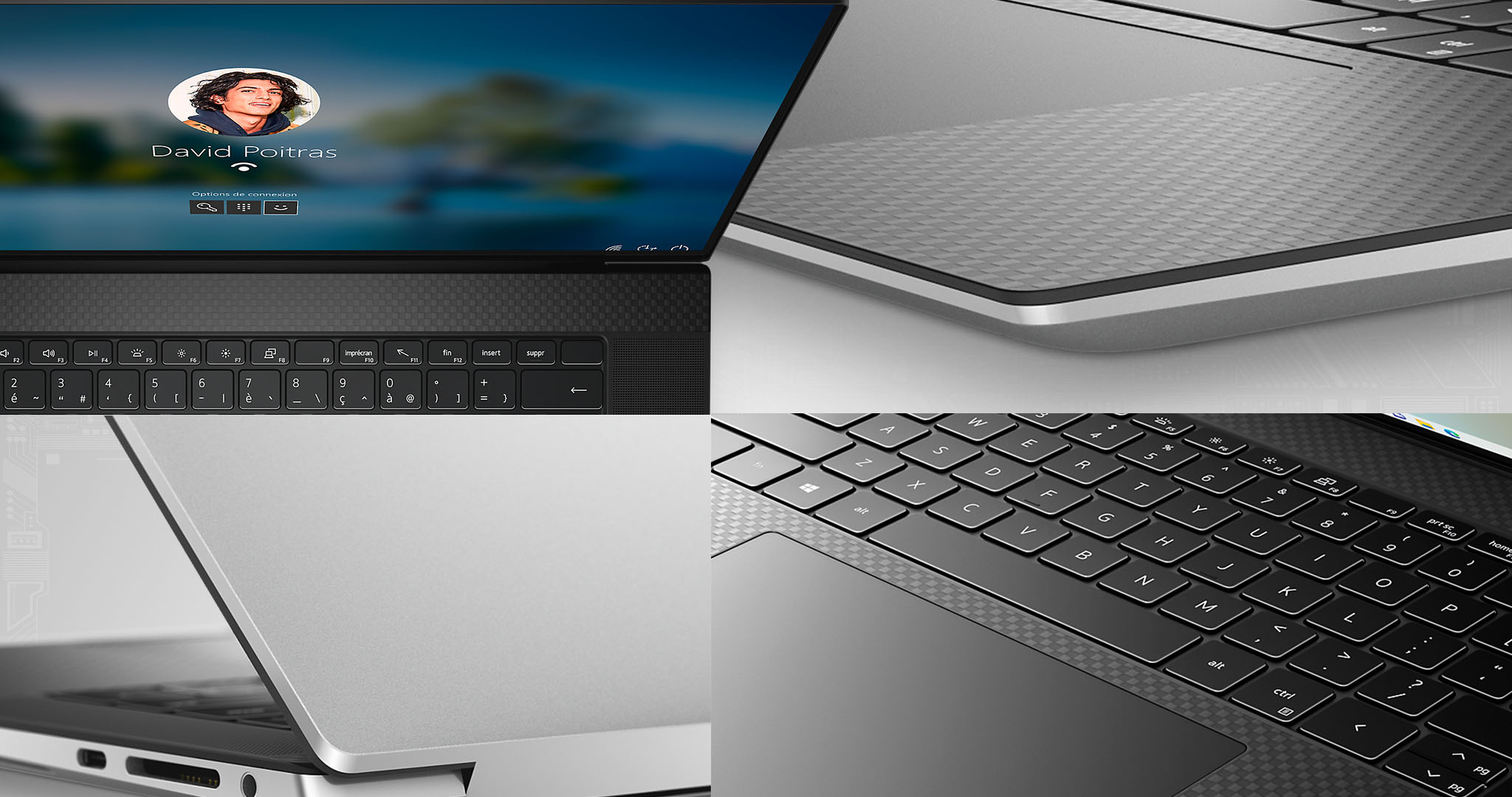
Source: Dell
The XPS line of laptops might not be geared towards creatives, but it nonetheless contains all the features a creative might want: powerful internals, incredible displays, best-in-class build quality, great speakers, and a specifically tuned fan curve that results in low fan noise whenever the laptop’s in use.
Are HP Laptops Great for Gaming?
They are — the OMEN and Victus lines, specifically — but they’re not exactly the best options on the market.
ASUS and Lenovo definitely have an edge in this particular area/segment.
Over to You
Both Dell and HP make some truly jaw-dropping laptops — portable computers of all shapes and sizes, designs, and performance levels.
And, perhaps best of all, they have something to offer for every kind of user regardless of budget and workflow.
Which “camp” do you lean towards and why? Let us know in the comment section down below and, in case you need any help, head over to our forum and ask away!
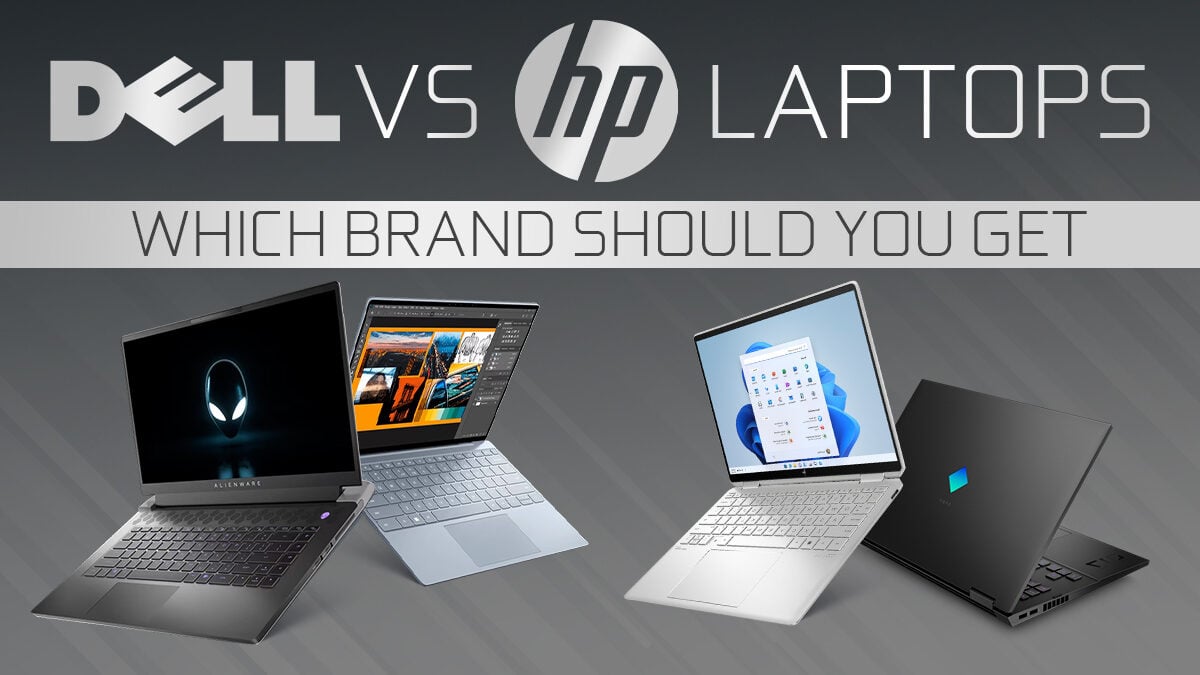
![Is Dell a Good Laptop Brand? [2024 Update] Is Dell a Good Laptop Brand? [2024 Update]](https://www.cgdirector.com/wp-content/uploads/media/2023/08/Is-Dell-a-Good-Laptop-Brand-Twitter-594x335.jpg)
![Is HP a Good Laptop Brand? [2024 Update] Is HP a Good Laptop Brand? [2024 Update]](https://www.cgdirector.com/wp-content/uploads/media/2023/06/Is-HP-a-Good-Laptop-Brand-Twitter-594x335.jpg)
![Lenovo vs. Dell Laptops: Which should you pick? [2024 Update] Lenovo vs. Dell Laptops: Which should you pick? [2024 Update]](https://www.cgdirector.com/wp-content/uploads/media/2023/03/Lenovo-vs.-Dell-Laptops-Which-is-the-Right-Pick-for-You-Twitter-594x335.jpg)
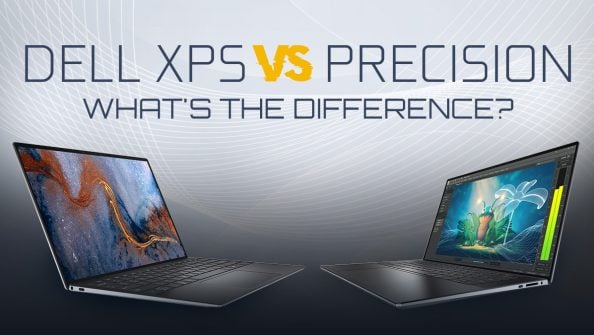

0 Comments